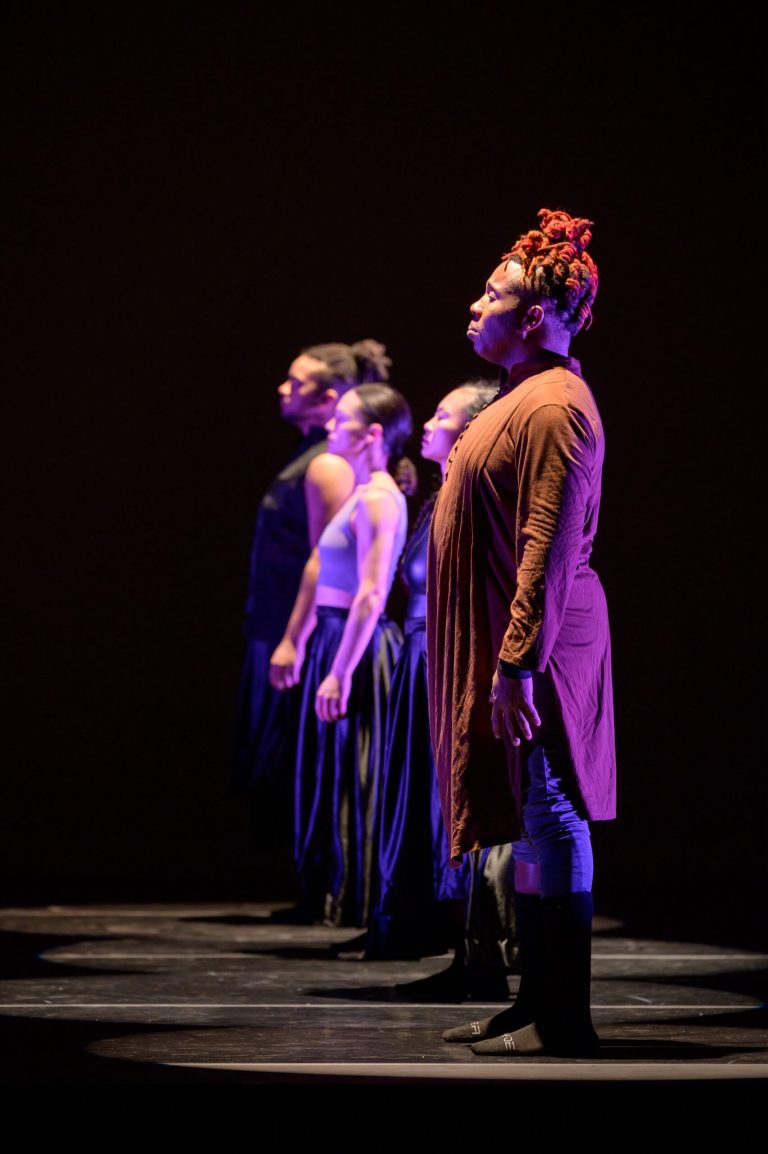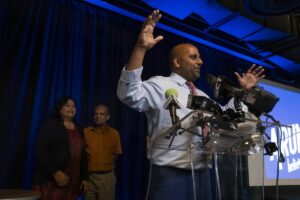Olivia Silvey ’25 & Sammi Bray ’25
Editors-in-Chief
Dean of the Faculty and Vice President for Academic Affairs Sonia Cardenas and Associate Dean
Takunari Miyazaki have been found by the Academic Freedom Committee (AFC) to have committed multiple acts of maladministration and violations of the Faculty Manual regarding their conduct surrounding a 2021 engineering department climate assessment. These acts of maladministration include attempting to coerce a professor in said department to retire while withholding the supposedly incriminating contents of the climate assessment from said professor and breaking the previously promised confidentiality of the assessment.
The AFC, which consists of five faculty members and whose mission is to protect academic freedom at the College, issued a June 2023 report that centers around two primary meetings in January and February of 2022 between the three parties (Cardenas, Miyazaki and the professor). These meetings are where the proposal of retirement was made by the deans to the engineering professor, who has been identified as professor John Mertens in an August Inside Higher Ed article. Prior to these meetings, Cardenas and Miyazaki reached out to Mertens via email to discuss a “confidential personnel matter,” which prompted the first meeting where Mertens was told that he was the “sole person responsible for the dysfunctional operations in the department,” per his complaint to the AFC, by the deans. Cardenas and Miyazaki did not share any specific allegations or findings about him supposedly held in the report. The deans then suggested that he choose a phased retirement plan, which would mean Mertens could teach for two more years. If he accepted this, the allegedly incriminating climate assessment would stay sealed and they would not report his alleged actions to the College’s Diversity, Equity and Inclusion Office (DEI).
At the next meeting about two weeks later, Cardenas and Miyazaki revoked the option for phased retirement. Instead, they told Mertens that he had 24 hours to decide to retire at the end of the semester, and if he did not choose retirement in that timeframe, the report would be sent to DEI. They also stated his potential emeritus status — a distinguished professorial title — post-retirement would be threatened if he did not agree to retire at the end of the semester. The deans still declined to share the contents of the assessment with Mertens at this second meeting. When asked to comment on the story, Cardenas stated, “The IHE article refers to a confidential personnel matter. What I can say is that Professor Mertens was not pressured to retire. In fact, an independent external expert investigated Professor Mertens’ allegations and concluded that the deans’ actions were fully appropriate. These actions were consistent with college policies and best practices regarding complaints of discrimination. As a reminder, at Trinity, every member of the community, including a dean, can and should report complaints of discrimination; this is a protected activity under the law. Contrary to what the article says, there is no constitutional crisis at Trinity.”
According to the AFC report, there were multiple actions made by the deans in these two meetings and related correspondences that are considered to be acts of maladministration. First was the deans’ decision to intervene in the “serious allegations” instead of immediately reporting them to DEI and/ or Human Resources (both of which did eventually happen). The report reads, “it is simply not the Dean of Faculty’s place to suggest retirement as an option in response to un-investigated allegations, especially since the issue of retirement seems not to have been introduced by Professor X [Mertens].”
Second was the deans withholding details of Mertens’ supposed allegations while simultaneously using those allegations to coerce the professor into retirement. The report reads, “the conversation should have focused on process… discussing the possibility of retirement with a faculty member at a meeting whose purpose is to convey the existence of but not the content of serious allegations against them is coercive.”
Additionally, the deans broke the confidentiality promised to the engineering department at the beginning of the climate assessment, which was originally announced in August 2021. In their meetings with Mertens, they cited this confidentiality as reasoning for not sharing the content of the allegations with him, yet in March 2022, Cardenas sent Pamela Whitley, Assistant Vice President for Diversity, Equity and Inclusion and Compliance, the supposed allegations; in June 2022, Michelle Cabral of the Human Resources Department (HR) filed a formal complaint against Mertens for the still-unknown allegations, meaning that they were also shared with HR. The report reads, “… these allegations, which arose from discussions had under the pretense of confidentiality, did not remain with the Dean’s office; they were sent to the Office of DEI and to HR.”
Mertens was notified of an investigation into his still-unknown allegations by DEI in early May 2022. This investigation would be conducted by outside lawyer Scott Roberts, just as the original climate assessment was conducted by an outside lawyer, Kevin Kinne. According to the Ombud report, the referral of the allegations by the Dean of Faculty’s office to DEI is a violation of the procedures in the Non-Discrimination Policy. The Faculty Ombud, identified by Inside Higher Ed as philosophy department professor Shane Ewegen, serves as an “impartial and confidential investigator,” according to the Faculty Manual. The Ombud report reads, “the [Non-Discrimination] policy states that if a person brings a complaint to one of the specified offices (such as the DOF office), that office can generate a report and refer the matter to the office of DEI. But this is not what has happened here. Rather, the DOF drew upon information gathered in the Climate Assessment, wrote a report, and sent it to the office of DEI… the DOF office was not referring a complaint brought to them by an individual (or even a group of individuals), but rather referring a summary of an assessment that they themselves had conducted.” The Ombud qualifies this as maladministration. When asked to comment on the story, Ewegen stated that “Although nothing prevents me, as Faculty Ombud, from speaking about certain aspects of this case, for the time being I would rather not. I will only urge everyone to read the various documents that have been made public and to consider their implications carefully. The form — and even the very existence — of democratic governance at Trinity depends upon how the faculty, administration, trustees, and students respond to this situation. The future is in our hands.”
The DEI investigation into Mertens’ allegations lasted approximately 10 months. In March 2023, Mertens sent the AFC an excerpted copy of Roberts’ report, which found no supporting evidence that Mertens violated the Non-Discrimination Policy, therefore exonerating him from the climate assessment allegations. The report reads, “the only first-hand allegations of discriminatory conduct by Professor Mertens towards students came from XXXXXXX… No other students nor any faculty members that spoke with the investigators stated that they had personally observed any discriminatory conduct by Professor Mertens.”
The singular first-hand allegations were from student XXXXXXX ’18. These complaints had already been investigated and resolved twice before Roberts’ investigation, and this was known by Cardenas, who was deeply involved with the 2020 investigation of these complaints. The only other findings from the report potentially negatively reflecting on Mertens involved his dealings with another professor’s teaching, with an alleged insinuation that Mertens felt comfortable doing so because of the professor’s national origin. The report reads, “The testimonial and documentary evidence demonstrate that Professor Mertens repeatedly raised concerns about Professor YYYYY’s alleged use of teaching assistants and student labor while Professor Mertens was the department chair, and that Professor Mertens’ concerns continued even after his term as chair concluded. The evidence further reflects that Professor Mertens’s concerns were not imaginary or unjustified…” Ultimately, Roberts found nothing recent, substantial and un-investigated in his report about Mertens.
When asked to comment on the story, Mertens stated that “There have been two investigations of Dean Cardenas that each perfectly followed the written policies of the college. Each resulted in 16+ page reports detailing maladministration, abuse of power and retaliation against me. The administration is refusing to acknowledge the contents of the reports. Instead the administration is trying to rewrite college policy in such a way that they can claim the investigations shouldn’t have been performed. They have also impugned the motivations of the investigators, which is appalling.”
This is an ongoing story.







[…] Academic Freedom Committee (AFC) found Cardenas and then-Associate Dean Takunari Miyazaki to have committed acts of maladministration against engineering professor John Mertens. The findings of the AFC largely relied on what took […]